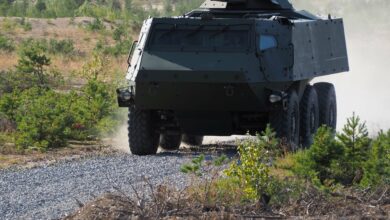Babcock has partnered with Hobson Industries to increase the availability of the British Army’s ground vehicles.
Hobson, an engineering company based in Louth, provides through-life services for Land Rover Defender (Wolf) vehicles.
The firm delivers refurbishments to complete restoration for the product line’s soft-skin and armored variants.
Supporting the Land Rover Wolf
Under the collaboration, Babcock will leverage Hobson’s expertise to advance technical solutions for vehicle design, production, and sustainability.
The consortium will initially focus on the Wolf system, enabling the British Army to employ cost-effective platforms, increase reliability, and ultimately expand assets, bolstering its front-line commands.
Babcock wrote that the teaming will utilize a “suite of technical and digital” technologies to address obsolescence concerns.
“This framework agreement builds on a long-term association of mutual respect, joint skills and capabilities and enables Hobson Industries and Babcock to work more closely together to achieve a common goal to deliver excellence of service and capabilities to UK Armed Forces,” Hobson Industries Managing Director Peter Hobson stated.
Solving ‘Challenges’
Babcock currently provides platforms, lifecycle support, and associated management support for approximately 60 percent of British Army vehicles.
“Finding modern, sustainable solutions to some long-standing challenges will enhance the operational capability of the British Army,” Babcock Material Availability Services Director Jon Morley explained.
“Hobson Industries are subject matter experts and we’re delighted to be formalising our relationship with them.”

Babcock and UK Military Vehicles
Babcock recently teamed up with Supacat to begin production of the service’s Jackal High Mobility Transporters, which were ordered last year.
In February, the company signed an agreement to supply technical and trade training for the army’s armored vehicle teams.
Babcock also introduced 3D-printed metal vehicle parts to extend the operability of the British Army’s Titan and Trojan armored engineer fleets.












